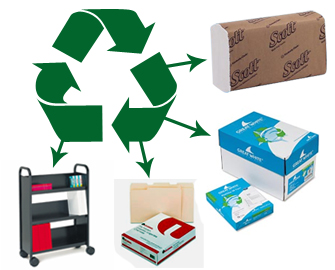
Using left over materials to create other “by-products” (Aka: Recycling)
The world is now becoming more and more involved with the betterment of the environment. Companies started investigating ways to use their production process’ leftover waste and forming it into by-products which can be resold. Assistant Professor Deishin Lee of the technology and operations management department of Harvard Business School believes in the concept of By-Product Synergy (BPS). BPS “consists of taking the waste stream from one production process and using it to make a new product”. This ancient idea has begun long ago, perhaps gone unnoticed by man-kind as an important skill-set, but it quite prevalent in the study of history. For instance, the natives hunted moose, preserved the meat for winter, used the hide as clothing and the antlers for sleighs or other tools. Every part of the kill was efficiently used.
When “By-product Synergy” occurs, there may come a point where the by-product becomes more profitable than the original product. When this happens, the business will increase production in order to produce more of the by-product to improve profits. Thus, large manufacturers can potentially damage the eco-system by increasing production and producing more waste that may leach into natural habitat. So should “By-product Synergy” be attempted by all companies? Ultimately, I believe that companies introduced to “By-product Synergy” must be responsible for their actions.
References
Blanding, Michael. “Transforming Manufacturing Waste into Profit — HBS Working Knowledge.” HBS Working Knowledge – Faculty Research at Harvard Business School. N.p., n.d. Web. 27 Sept. 2013. <http://hbswk.hbs.edu/item/6800.html>.
